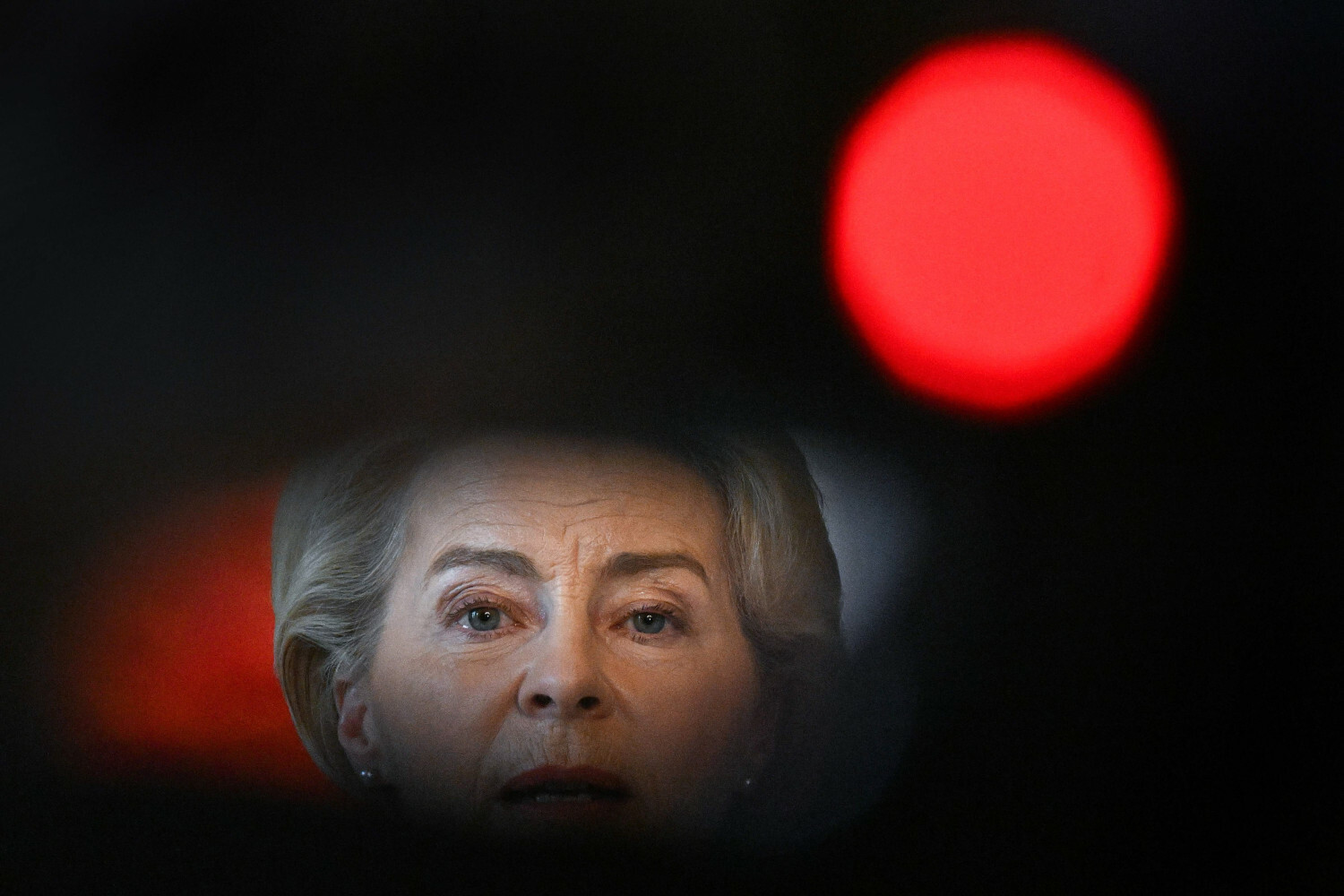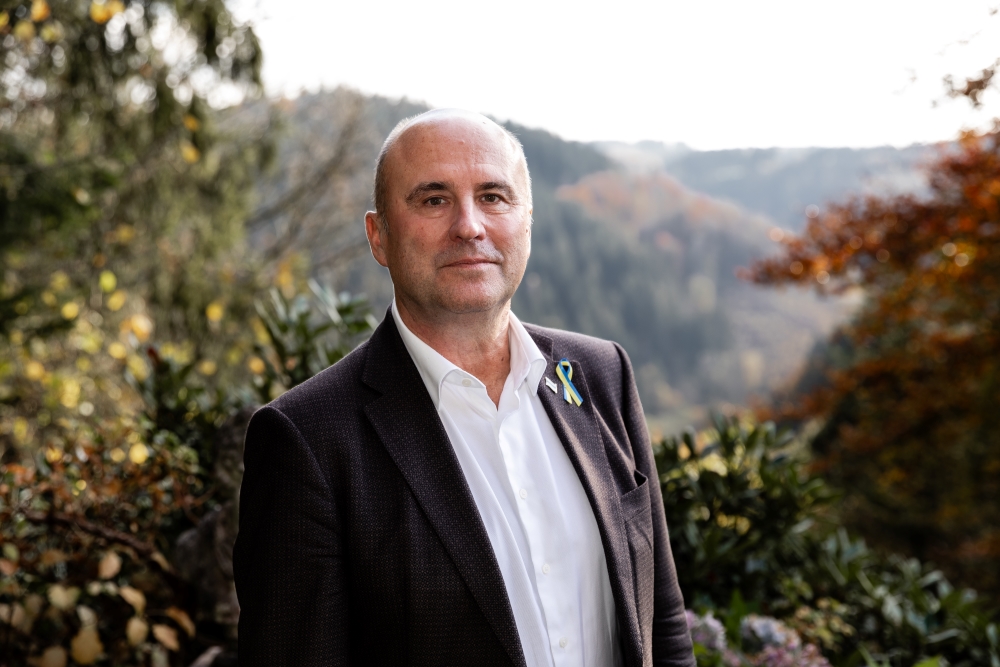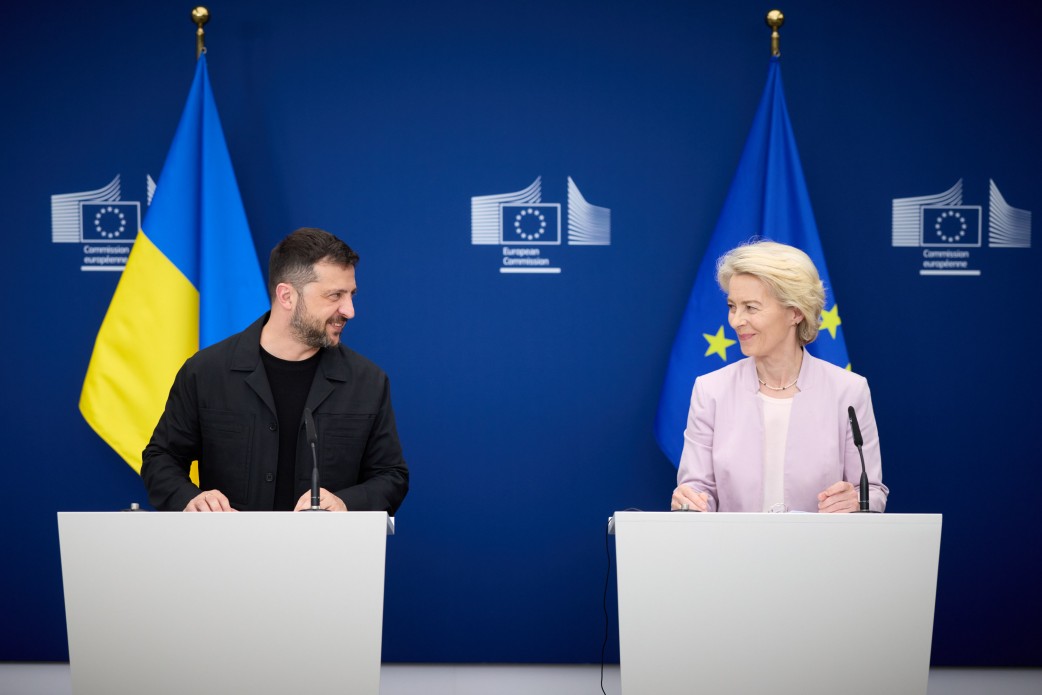Support Sestry
Even a small contribution to real journalism helps strengthen democracy. Join us, and together we will tell the world the inspiring stories of people fighting for freedom!
In January, another group assembled by Russian special services was discovered in Poland. It attempted to influence Polish elections by spreading disinformation. However, Moscow exerts its influence over European countries not only through such tools. As a result, pro-Russian sentiments in Europe are strengthening, and far-right political parties are gaining increasingly strong positions.
German politician («Alliance 90/The Greens»), MEP (2004-2019) and Vice Chair of the Supervisory Board of the European Centre for Press and Media Freedom, Rebecca Harms, gave an exclusive interview to Sestry, discussing the biggest challenges the EU faces due to Russia’s actions and whether Europe is doing enough to counter them.
Russia’s Influence in Europe
Maryna Stepanenko: In June, the EU banned European political parties, think tanks and other organisations from receiving funding from Russia. However, are there loopholes that still allow Moscow to extend its influence over European countries?
Rebecca Harms: We have a new example based on an investigation by German journalists and disinformation experts. We know that since November 2024, a systematic campaign against German politicians has been underway. It is linked to the Russian troll factory once run by the late Yevgeny Prigozhin. Investigators discovered that more than 100 fake websites had been created to conduct campaigns against Vice Chancellor Robert Habeck and Foreign Minister Annalena Baerbock, spreading grotesque and false information about them.
I believe something similar has been happening in most EU member states, ever since Russia decided to launch an information war and support anti-democratic and pro-Kremlin parties across the European Union
Russia is actively trying to influence countries such as Armenia, Bosnia and Herzegovina, Georgia, Moldova and Serbia through economic, political and military pressure. Why is it important for them to maintain a European orientation? How can Germany and the EU strengthen their support for these countries to achieve this goal?
We do not have a magic toolkit for these countries, but much depends on whether there is a critical mass of citizens and politicians within them who can resist. Take Armenia, for example. Pro-Kremlin and authoritarian leaders lost the elections, allowing Pashinyan and his government to come to power. This demonstrates a certain resilience, and the European Union should support it, including by keeping the prospect of Armenia’s EU membership open.
You also mentioned Moldova. Partly thanks to Ukraine’s efforts, it has not only gained the prospect of EU membership but will soon begin accession negotiations. In some cases, external support matters. However, in Georgia, challenges have increased following recent elections. Nevertheless, the European Union continues to use democratic and legal mechanisms to encourage Tbilisi to return to democratic governance.

The rise of far-right sentiments in many European countries is often accompanied by pro-Russian rhetoric. How seriously does this threaten European unity and what actions can effectively counter these trends?
The European Union cannot win this battle against Russia alone.
Resilience is needed, and at times - resistance both in EU member states and in countries under pressure. At the same time, the EU can provide crucial support
We see this happening now, as the EU increases its involvement in the Balkans, as well as in Georgia and Moldova. Unfortunately, in Georgia, the EU took too long to respond adequately to the shifting priorities of the ruling party, which is controlled by a Georgian oligarch. At the same time, President Salome Zourabichvili, whom I greatly respect, also took quite some time to take a clear stance against the government.
The EU has tools to ensure fair elections, monitor voting processes and respond to cases of election fraud. We also have mechanisms to promote media freedom, institutional independence and the rule of law. These tools are stronger within the EU, but citizens of countries under Russian pressure are increasingly recognising their importance.
Take Serbia, for example. We are now witnessing a powerful public reaction against deeply rooted corruption, which is directly linked to President Vučić and his closest circle.
Russian disinformation and elections
Early elections will soon take place in Germany. Have you noticed any further attempts at interference from Moscow, apart from the campaigns initiated by «trolls»? How do they occur?
Recent investigations confirm that Russian-controlled «bot farms» and influencers are actively spreading disinformation through social networks, using both state propaganda channels, such as Ruptly, and direct online manipulation. In addition, influential politicians promote pro-Russian narratives through media appearances. Some act voluntarily, so to speak, on a public basis, while others are likely financed by industrial empires linked to Putin.
The rhetoric of these individuals questions NATO and the EU. However, the full extent of their influence will only become clear over time
Two parties in Germany - the far-right AfD and the new party of Sahra Wagenknecht (The Sahra Wagenknecht Alliance, - Author) - openly promote Kremlin propaganda not only concerning Ukraine but also against Europe and democratic institutions. It remains unclear whether they receive direct funding from Russia or only indirect support. Meanwhile, within major parties such as the SPD and CDU, remnants of the old camp of «Putin-Verstehers» (a derogatory term for German politicians and experts who sympathise with Vladimir Putin and claim that Germans should understand his position, - Author) still argue that Russia is an important partner for Europe's stability and unity. This position is based on the outdated Russlandpolitik (Germany’s policy towards Russia, - Author), yet it still holds some influence.
Why do pro-Russian or openly anti-European candidates - such as Zoran Milanović in Croatia or Călin Georgescu in Romania - find support among the population? Is it linked to growing scepticism towards the EU or the influence of disinformation campaigns?
Through social networks and pro-Russian media, directly or indirectly supported by Russia, propagandists manage to convince people that the problems in their countries - from healthcare to migration - are the result of poor EU governance and insufficient patriotism from their governments. This is particularly evident in the case of migration. For example, it was the Russian Air Force, not just the Syrian regime, that caused the massive wave of refugees from Syria. The same is happening today with refugees from Ukraine. Russian propaganda manipulates this issue, ignoring the obvious fact: people are being forced to flee precisely because of Russian bombings.
It is astonishing how easy it is today, using uncontrolled media and social networks, to make people believe lies. Europe is facing a problem that is almost impossible to solve
These so-called «social media» are not social at all - they are a hub for spreading injustices and disinformation, which have devastating consequences. However, when they first emerged, the left-liberal camp saw them as a «promised land» of freedom and equality, so these political forces resisted any regulation.
Now, the same people are demanding stricter rules, but it is extremely difficult. Young people who, for instance, use TikTok, believe that restrictions threaten their freedom, although in reality, it is about banning blatantly foolish content. Previous attempts to establish rules for digital media failed due to the resistance of major internet companies. Now, we face one of the biggest challenges - to finally implement the necessary regulations.

Poland has long been and remains one of Ukraine’s key allies. What risks does potential Russian interference in the May elections in Poland pose, and how could it impact support for Ukraine in the region?
Not only is Poland as a whole crucial for Europe, but so is Donald Tusk specifically. As a former President of the European Council and an experienced leader, he is a clear target for Russian efforts to undermine stability. Additionally, Poland is one of Ukraine’s strongest supporters and a key advocate for strengthening the EU’s military capacity, making it a priority target for Russian interference.
However, the Polish people must know that their newly elected democratic government, formed through a complex but legitimate coalition, is well-prepared to withstand this pressure
EU energy blackmail
Ms Harms, how successful have the EU’s efforts been in reducing dependence on Russian energy resources?
Compared to 2022, dependence has decreased. At least, according to the latest data I have seen in Germany, the situation has stabilised. Yet, if we had acted more consistently regarding sanctions, the result would have been better and faster.
It outrages me that «Rosatom» has still not been sanctioned. This company was part of nuclear terror from the first days of the war: the attack on Chornobyl, assaults and occupation of the Zaporizhzhia nuclear power plant, and now - strikes on energy infrastructure, which create enormous risks for nuclear power plants in Ukraine.
That is why every time I read positive articles about the nuclear industry in France, I am surprised that those who admire it do not mention its connection with «Rosatom». For instance, EDF, the French nuclear company, is one of its key clients, and the French energy sector remains significantly dependent on imports from Russia.
How can the European Union counter Viktor Orban’s blackmail, as he attempts to use the issue of Russian gas transit to weaken sanctions against Russia?
I believe that the European Union is capable of compensating for imports from Russia through other sources. Thus, this is a problem or a challenge that can only be resolved if Orban also wishes to resolve it. However, even Hungary can survive without Russian gas.
Ukraine’s EU membership disruption and the risks of prolonging the war
What mechanisms do you believe Russia is using to sabotage Ukraine’s European integration aspirations? Is the EU doing enough to stop these attempts?
At every event concerning Ukraine’s integration into the EU, I feel that this is the best decision I have ever witnessed. Although the EU opened its doors to Ukraine too late, it has finally happened - despite Russian aggression.
It was a bold decision both for Ukraine and for the European Union. We are now in the preparatory phase for opening the first stages of negotiations
Undoubtedly, Russian interference, disinformation and other problems exist. The European integration process is already complex. However, the war itself makes meeting the requirements even more difficult. Thus, we are facing a completely new integration process, and predicting its future is challenging.
We are now hearing many statements regarding the end of the war in Ukraine. Everyone is closely watching the actions of US President Donald Trump. While we do not yet have definite outcomes, in your opinion, what risks does a prolonged war in Ukraine pose to the economic, political and military stability of the European Union?
It is not only Trump who says it would be better if the war ended. In reality, those who have suffered, who have lost their families, homes and cities, understand far better why it is crucial for the war to end as soon as possible. They know this much better than Trump.
However, on the other hand, the conditions for a ceasefire or truce must be such that they guarantee Russia will not repeat its attack on Ukraine in the future. This is crucial both for the EU and for Ukraine
Everyone wants to move on to a period of recovery and reconstruction, but we are not there yet.
In Davos, President Zelensky stated that «Europe must establish itself as a strong, global and indispensable player». Can support for Ukraine be considered the key test for Europe as a global player?
Yes, I believe so. The European Union, particularly some leading states that stood in defence of Ukraine even before February 2022, has become a much stronger player in the field of defence and security. However, significant steps still need to be taken, and this has once again become evident after Trump took office.
It is disappointing to see that, despite all the discussions before his inauguration, Europe was not truly prepared for Trump’s return to power. Although the EU has made considerable efforts since 2022, it is still far from being able to fully protect the continent. NATO is the key player here, and Europe now needs to seriously invest in the North Atlantic Alliance and its own security and defence forces.
This is one of the most urgent issues, in my opinion. Unfortunately, if you look at the German election campaign, this issue has not been given enough attention. Even after nearly three years of Russia’s invasion of Ukraine, many politicians still hesitate to discuss these critical matters with their voters.
Cover photo: IMAGO/Andreas Friedrichs/Imago Stock and People/East News
The project is co-financed by the Polish-American Freedom Foundation as part of the «Support Ukraine» programme, implemented by the «Education for Democracy» Foundation




Ukrainian journalist. Worked at the Ukrainian edition of Radio France Internationale. She was the senior editor of the English-language project of the Multimedia Broadcasting Platform of Ukraine. She held the position of international news department columnist at the «Inter» TV channel. She has also been involved in documentary filmmaking in the past. Currently, she is developing a Ukrainian-language YouTube project as an editor and scriptwriter.
















